Author: Quaker Earthcare Witness
- All
- Activism
- Advocacy
- African Diaspora
- Art & Poetry
- BeFriending Creation
- Biology
- Books We Love
- Climate Change
- Divestment
- Economics
- Environmental Justice
- Featured in the Media
- Fracking
- Friendly Landscapes
- Indigenous Peoples
- Individuals Taking Action
- Meetings Taking Action
- Mini-Grants
- Minutes on Earthcare
- New & Exploring
- Pamphlets for Sharing
- Peace
- Permaculture
- Population
- QEW Position Statements
- Quaker Testimonies
- Racial Justice
- Renewable Energy
- Resources
- Skeptics
- Soil
- Spirituality
- Sustainability
- Theme
- Theology
- Timeless
- Timely
- United Nations
- Water
- Youth & Young Friends
-

Youth-Led Quaker Grassroots Projects
Quaker Earthcare Witness is pleased to share the news about three mini-grant recipients in 2020 and 2021: New Garden Friends/Guilford College Environmental Justice Internship: New Garden Friends Meeting was awarded funds to match commitments from New Garden Friends Meeting, Guilford College, and North Carolina Interfaith Power and Light to…
Read More -
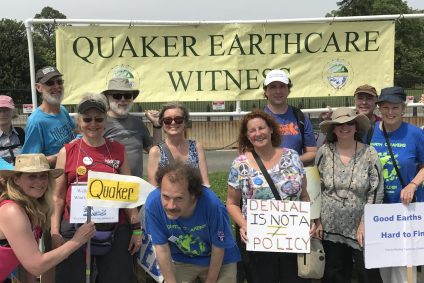
Where’s the Hope in That? A Message from Quaker Earthcare Witness
My name is Mary Jo Klingel, and I am a member of Quaker Earthcare Witness and have served as clerk. I want to share with you about a forum I facilitated on earthcare for my meeting in Charlotte, NC. Near the end of the forum, a man who had been…
Read More -
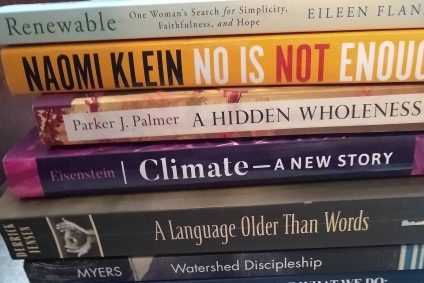
QEW’s Favorite Books
We asked QEW members to share their favorite books. Happy reading! Books to Read for These Times: Climate: A New Story by Charles Eisenstein. “How changing the ‘climate’ of our thinking and rhetoric can influence how we deal with physical climate change.” The Parable of the Sower by Octavia Butler. “About…
Read More -
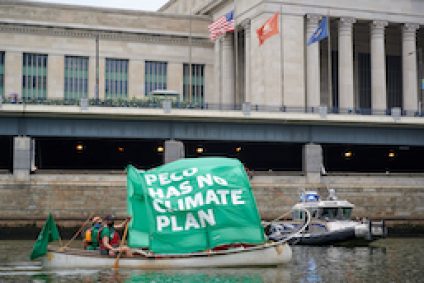
EQAT AT 10: Finding Resilience in an Unimaginable Year
By Lee McClenon. In the last few decades, some social scientists studying organizations have recognized that organizations are healthiest when they embrace a bit of unpredictability. In this model, networks are more powerful than individuals. Resilience is more important than brute strength. And a groundbreaking idea can come from anywhere.
Read More -
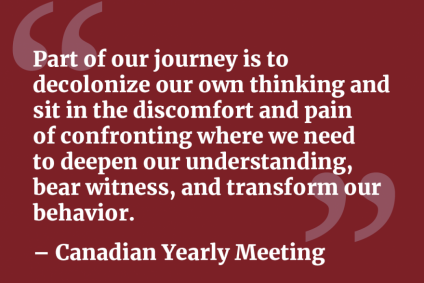
Examining Institutional Racism
By Lauri Langham. The intersection between environmental justice and racial justice is a busy one. We recognize how Black, Indigenous, people of color (BIPOC) and low-income people are the frontline communities that suffer the first and worst effects of planet destruction and climate change: from the placement of toxic dumps…
Read More -
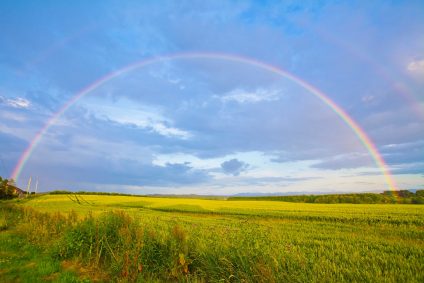
Contemplative Action in the Time of Climate Change
Share This Article This article is part of our Pamphlet for Sharing Series Download PDF By Tom Small and the QEW Publications and Spiritual Nurturance Committees. We live in the time of The Long Emergency, and the Age of Unintended Consequences. Every morning…
Read More -
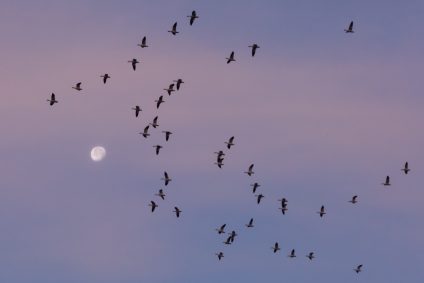
Pleasing the Divine with Evolutionary Love
By Jose Aguto History is littered with the graceless exits of despots clinging to the chimera of the temptation of secular power for personal glorification above the good of others. We know this from the Gospels as one of the three temptations the devil offered to Jesus, which he in…
Read More -
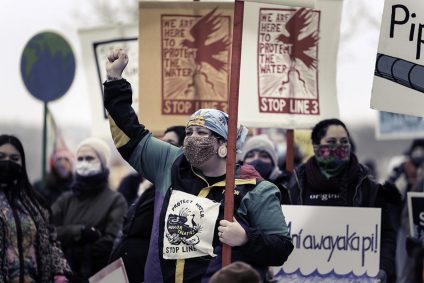
Build Back Fossil Free
By Hayley Hathaway and Ruth Darlington. “If we’re going to Build Back Better, we need to do better. And that starts by putting Indigenous people and their voices first, before any [fossil fuels] project is put in place…It is our Indigenous right to protect what little we have left,” shared…
Read More -
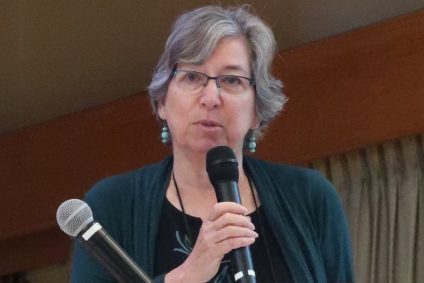
Spiritual Ecology: My Journey and Our Journey
A Talk by Shelley Tanenbaum. I am deeply grateful to the Southern Appalachian Yearly Meeting’s (SAYMA) planning committee for bringing me here – and for asking me to talk about eco-spirituality and my personal journey. I’ve been asked to talk about what it has meant to me to connect on…
Read More -
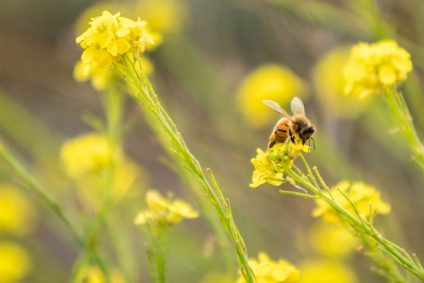
Permaculture: The Art of Designing Beneficial Relationships
By Carol Barta. Permaculture is said to be “the art of designing beneficial relationships.” Permaculture is a design science rooted in the observation of natural systems, the wisdom of traditional farming methods, and systems thinking. It uses both ancient wisdom and modern scientific and technical knowledge to create sustainable habitats…
Read More -
Fracking 101 Glossary
Helpful Terms to Better Understand Fracking Clean Water Act of 1972 – national legislation which established the basic structure for regulating discharges of pollutants into the waters of the United States and regulating quality standards for surface waters. (www.epa.gov) Energy Policy Act of 2005 (Halliburton Loophole) – legislation…
Read More -
The Myth of a Century of Natural Gas in the U.S.
In arguing against fracking, it is important to debunk the myth that the U.S. has enough natural gas reserves to fulfill our need for the next 100 years. It is equally necessary to discuss the plan by gas companies to make the export of natural gas the next big…
Read More -
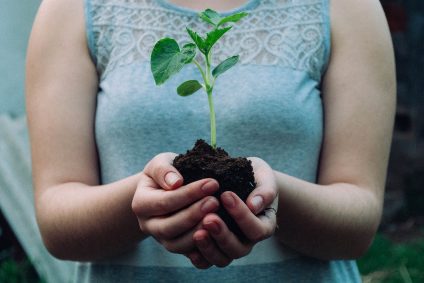
Quaker PopOffsets
Are you concerned about your “carbon footprint”? QEW’s Population Working Group can help. QEW’s Population Working Group offers an innovative program to help confront climate change and other environmental problems. It is based on a similar program in England – “PopOffsets” – an offshoot of the British organization Population Matters.
Read More -
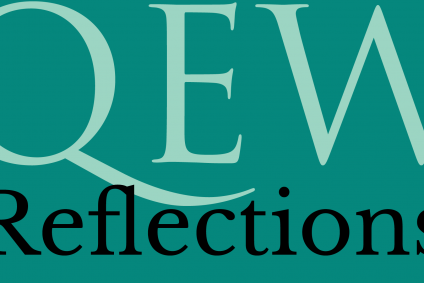
What I’m Learning From the Pandemic
By Shelley Tanenbaum. EVERY YEAR WE Friends ask ourselves, “How has truth fared for Thee?” It is a way of refreshing ourselves, of self-evaluating personally and in our Meetings. It gives us an opportunity to change course and to respond to emerging leadings. What if we see the coronavirus pandemic…
Read More -
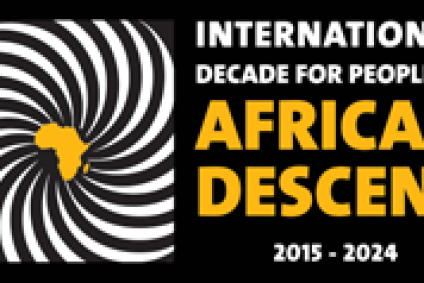
United Nations International Decade for People of African Descent
United Nations International Decade for People of African Descent The United Nations (UN) commemorates international decades to focus world attention on a specific topic, and then mobilize resources to respond. In December 2013, the U.N. General Assembly proclaimed the decade of 2015 through 2024 to be the International Decade…
Read More -

Truth Is Something That Happens
by Louis Cox. DO YOU SWEAR that the testimony you are about to give is the truth, the whole truth, and nothing but the truth, so help you, God?… Early Quakers were known for their refusal to take such oaths in a court of law (often at the…
Read More -
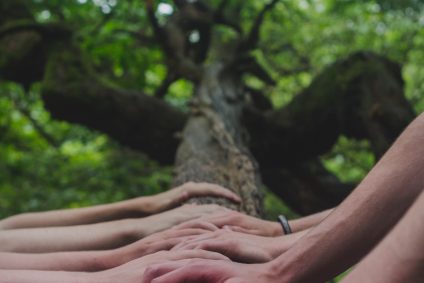
Why a Specifically Quaker Testimony on the Environment?
By William Beale. SINCE THERE ARE MANY excellent organizations actively working to improve our relation to the planet, is there any need or place for a specifically Quaker organization to address the same concerns? The fundamental environmental questions we face are essentially religious: What is our place in the…
Read More -
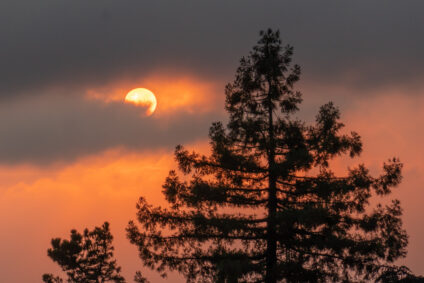
A Shared Quaker Statement: Facing the Challenge of Climate Change
[Last update: June 2017] “It would go a long way to caution and direct people in their use of the world, that they were better studied and knowing in the Creation of it. For how could [they] find the confidence to abuse it, while they should see the…
Read More -
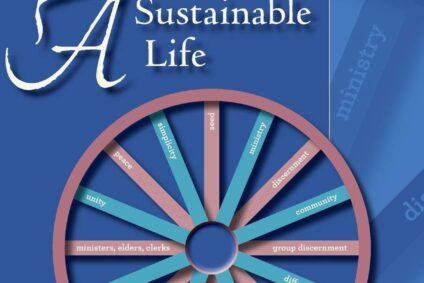
Q&A with Douglas Gwyn
Doug Gwyn, the author of A Sustainable Life: Quaker Faith and Practice in the Renewal of Creation, generously agreed to be interviewed for this issue of BeFriending Creation. Thanks, Doug! 1. You explain how your thought and interests developed through several books, always including the thread of your concern for the Earth. Was…
Read More -
Review: Coming Back to Life: The Updated Workbook to the Work that Reconnects
by Quaker Earthcare Witness. Coming Back to Life by Joanna Macy and Molly Young Brown is expanded and updated from their book of the same name published in 1998 (New Society Publishers, 2014, Gabriola Island, BC). The Deep Ecology work of Joanna Macy, also called…
Read More -
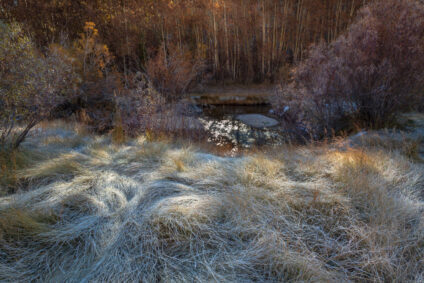
Important Reasons to Use Native Plants
Important Facts. Native plants are adapted to the local area and its climate. Unfortunately, many of our beautiful non-native garden flowers provide little or no food for honeybees, native pollinators, songbirds, and other wildlife. Non-native plants have the potential to become invasive species – weeds that spread rapidly and often crowd…
Read More -
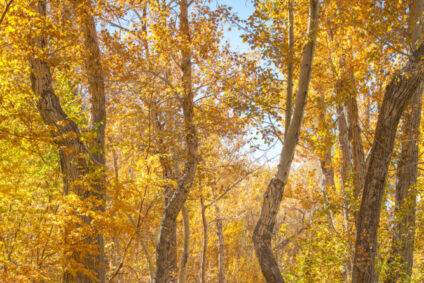
The Spiritual Basis of Earthcare
QEW’s PROGRAMS and publications stem from a conviction and consciousness that the global crisis of ecological sustainability is at root a spiritual crisis. Even as individuals in our network or our steering committee support political and social action in numerous areas, such as globalization, population, genetic engineering, and toxic pollution,…
Read More -
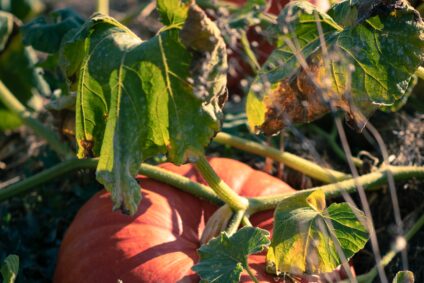
Ecological Principles of Permaculture
Three important ecological principles of permaculture are: The role that each organism plays, the niche it occupies; Understanding succession in natural ecosystems and using it to heal the soil and bring forth both annual and perennial crops; and including as much diversity in the garden space as possible, both of…
Read More -

Galápagos: Lessons from Finches, Marine Iguanas, and Islands
Now, as we careen into the Anthropocene era, the human species has seemingly become the prime mover of ever-accelerating change; but we are nonetheless subject to it. Subject to inexorable processes of evolution. “In this changing world everything is subject to change,” says the Isha Upanishad. The…
Read More -

Divestment FAQ
Isn’t it hypocritical to divest of investments in fossil fuel companies on one hand, but keep driving our gas powered cars on the other? Actually, this question goes right to the heart of why many of us have decided to take the step of divestment. First, the point should be…
Read More -
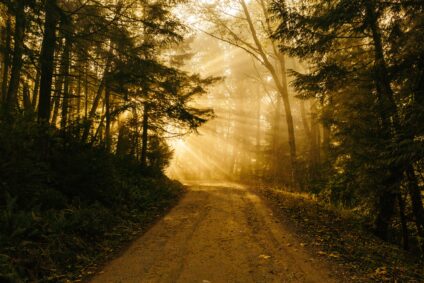
QEW Statement to the U.S. State Department on UNDRIP
United States Review of the UN Declaration on the Rights of Indigenous Peoples Comments from: Quaker Earthcare Witness (QEW) www.quakerearthcare.org QEW is an organization of individuals and of Yearly Meetings of the Religious Society of Friends (Quakers) across North America Directed to: the Department of State at: S/SR Global Intergovernmental Affairs, U.S.
Read More -

Statement to ECOSOC on Science, Technology, and Innovation
Statement to the High Level Segment of ECOSOC on Science, Technology and Innovation and the Potential of Culture for Promoting Sustainable Development and Achieving the Millennium Development Goals Science, technology, and innovation are moving ahead rapidly without due caution. Unintended consequences are being ignored, as the world was recently reminded…
Read More -
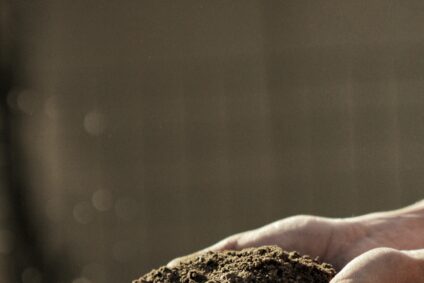
QEW Statement on the Doctrine of Discovery
In the days of European exploration and colonization, governments relied on what we now call the Doctrine of Discovery to extinguish all rights of indigenous peoples. The doctrine has not disappeared or been revoked. Instead, it has evolved into common property law, providing the underpinning of US and Canadian chains…
Read More -
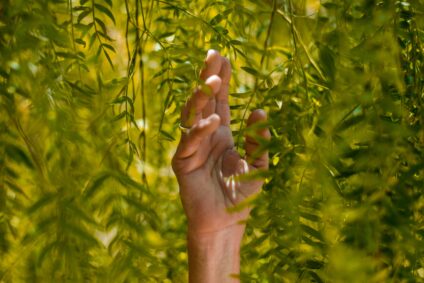
Statement on Unity with Diversity
Dear Friends, As both Friends and environmentalists, we on the Spiritual Nurturance Committee of Quaker Earthcare Witness hold a variety of personal views, beliefs and approaches based on the variety of our backgrounds, traditions and experiences. We see it as good for QEW to endeavor to…
Read More -
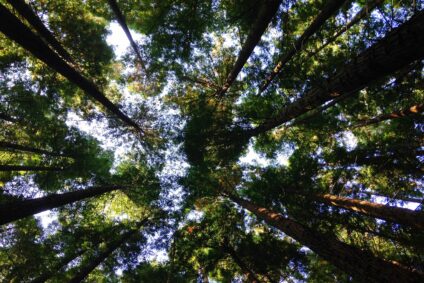
QEW Participates in Revisions to FCNL Policy Statement
About every 10 years, Friends Committee on National Legislation (FCNL) revises its full Policy Statement. This is the document that “forms the foundation and vision for all of our work,” according to the instructions FCNL gave to Quaker churches, meetings, and organizations participating in revising the 2003 Statement.
Read More -
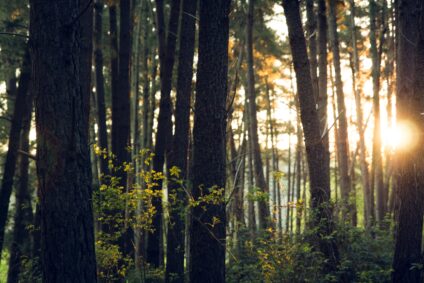
QEW Minute on Nuclear Power
Approved by the Steering Committee of Quaker Earthcare Witness in session, October 14, 2007, Burlington, Vermont. Quaker Earthcare Witness cannot support nuclear power as part of the solution to harmful climate change. As Friends, our peace testimony has long led us to witness against nuclear power because of its connection…
Read More -

Comment Suggestions on Supplemental Environmental Impact Statement (SEIS) for Keystone XL Pipeline
On March 1 of this year, the U.S. State Department released its draft Supplemental Environmental Impact Statement (SEIS) on the Keystone XL Pipeline, which is part of TransCanada’s application for a Presidential permit to build and operate the pipeline across the Canadian border into the U.S. A week later on…
Read More -
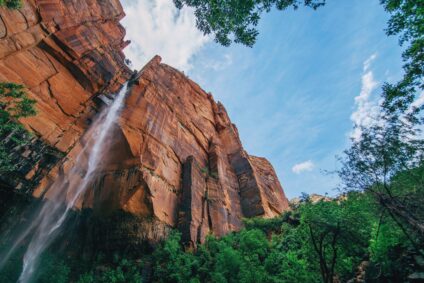
NEYM 2016 Yearly Meeting Minute on Climate Change
New England Yearly Meeting Minute 2016-67 Friends at the New England Yearly Meeting Annual Sessions at Castleton, VT, August 6–11, 2016, have heard a Divine call to the witness of addressing climate change. We affirm the overwhelming scientific consensus that greenhouse gases released by human activity are causing…
Read More -

A Shared Quaker Statement: Facing the Challenge of Climate Change
“It would go a long way to caution and direct people in their use of the world, that they were better studied and knowing in the Creation of it. For how could [they] find the confidence to abuse it, while they should see the great Creator stare them in the…
Read More -
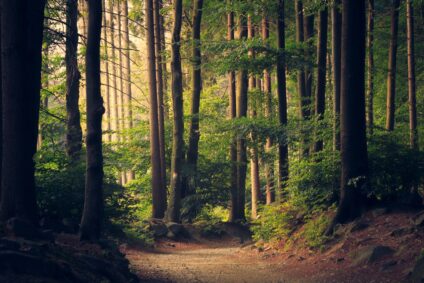
Recommendations for all Friends
To Friends Everywhere: Quaker Earthcare Witness developed some challenges, which are recommendations for Friends’ Churches and Meetings throughout North America. We ask local Friends’ fellowships and Yearly Meetings to prayerfully examine these challenges and to explore ways to act upon part or all of them. These are suggested actions to…
Read More -
Host a Film Festival on Energy Options
One excellent approach to sharing both the concern for our future and the tremendous potential for renewable energy is to host a film and discussion series. Below we have listed a number of options to consider. SHORT VIDEOS ON THE PROBLEM AND THE SOLUTION Palo Alto: http://www.go100percent.org/cms/index.php?id=25#c943…
Read More -
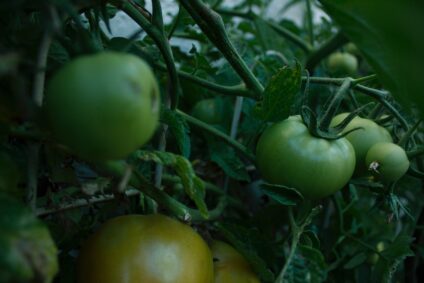
Introduction to Permaculture
The word “Permaculture” comes from two-word combinations: permanent and agriculture and permanent and culture. It is a design system that could potentially revolutionize what we call civilization. Largely used in homesteading or home and community gardens, rather than in large agricultural acreages, permaculture includes perennial vegetables and fruits, both bush and tree. In regards to culture,…
Read More -
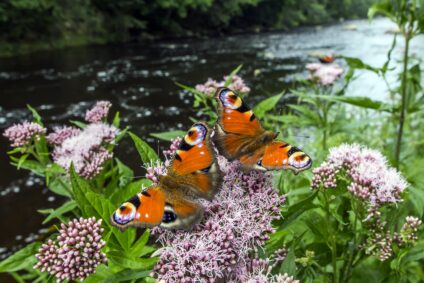
Planning, Planting, and Managing Your Butterfly and Pollinator Garden
NATIVE PLANT SELECTION, LAYOUT GUIDELINES, AND MANAGEMENT STRATEGIES FOR BUTTERFLY AND NATIVE POLLINATOR GARDENS Step 1: Location. Choose an appropriate spot for your garden. Step 2a: Strategies to Create Positive Public Perception Before Planting Consider the public perception of your native garden planting before you begin. Discuss your native garden…
Read More -
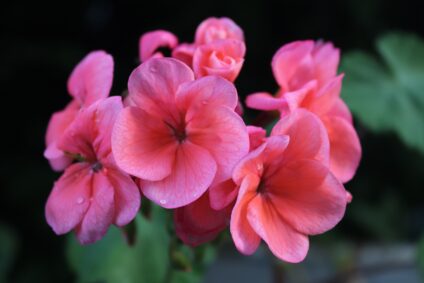
Choosing Native Plants for Pollinators in Your Area
As Sophie explained in her article, Shrinking or Transforming Your Lawn, it is important to use plants from your native area so that the ecosystem will flourish. The non-profit organization Pollinator Partnership promotes the health of pollinators through conservation, education, and research. You can use the tool on their website…
Read More -

Ecological Principles of Permaculture
Three important ecological principles of permaculture are The role that each organism plays, the niche it occupies; Understanding succession in natural ecosystems and using it to heal the soil and bring forth both annual and perennial crops; Including as much diversity in the garden space as possible, both…
Read More -
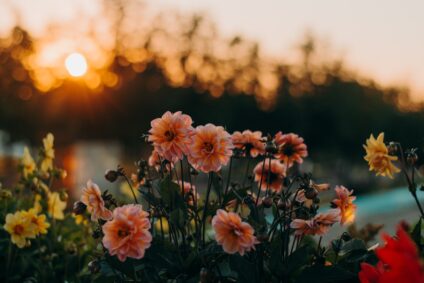
Important Reasons to Use Native Plants
Important Facts. Native plants are adapted to the local area and its climate. Unfortunately, many of our beautiful non-native garden flowers provide little or no food for honeybees, native pollinators, songbirds, and other wildlife. Non-native plants have the potential to become invasive species – weeds that spread rapidly and often…
Read More -
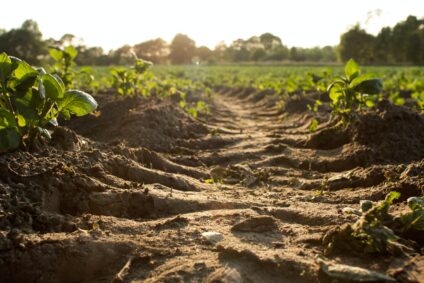
Practical Permaculture Methods: Start Today!
Permaculture, as much as possible, is an imitation of nature. Nature does not like bare soil; it is quickly filled up. A permaculture garden, except for paths, is filled chock-full with growing life. Soil is alive and miraculous. Rocks and organic matter decompose with the help of microscopic animals and…
Read More -
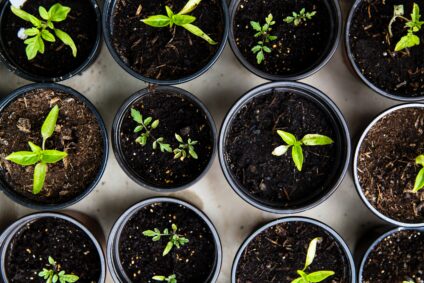
Planning a Permaculture Garden
Planning a permaculture garden is important; although much learning comes from experimenting with ideas. For instance, I tried planting potatoes in a “hugelkultur,” a pile of small sticks with a lot of compost over them (probably not enough in my case), and the yields were definitely smaller than planting them…
Read More -
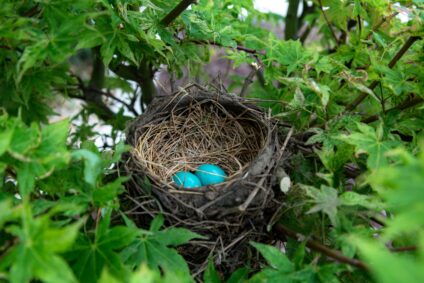
Birds, Plants, and Insects: What They Need
Today we are discovering new things every day about the relationships between plants and insects and humans. Chickadee babies eat thousands of caterpillars that their hard-working parents bring them. Around industrial farms, the insects have been killed with pesticides and there aren’t any caterpillars available. Even in our…
Read More -
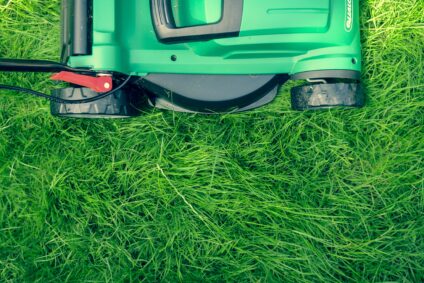
Shrinking or Transforming Your Lawn
Centuries ago, wealthy landowners in England, with lots of land and lots of sheep, pastured the sheep in front of their mansions and invented the present-day lawn. Eventually, more people adopted the practice of lawns, not with sheep, but with newly invented lawnmowers. Today, maintaining the lawns around our homes…
Read More -
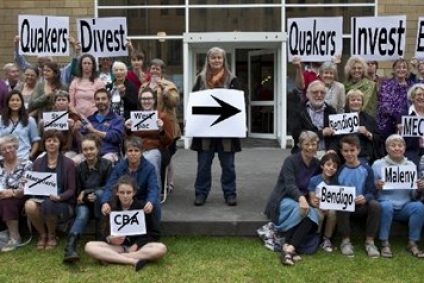
Friends’ History of Investing with Integrity
Friends groups have a long and proud tradition of ethical investing. As Friends, we have consistently sought congruity of our principles when we consider what types of investments we should hold. We understand that how we use our money and what we choose to own is always a moral choice.
Read More -
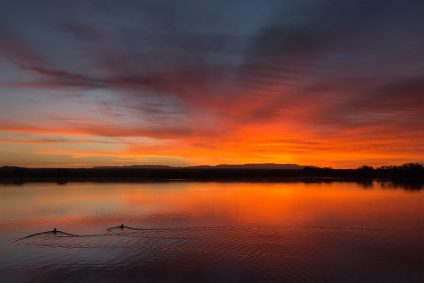
Practicing Earth Activism
By Ruah Swennerfelt (Updated 2021 by Hayley Hathaway). To become more active on behalf of Earth, start by making yourself aware of the issues. Learn from sources in addition to the conventional news reports. Begin examining ways you can reduce your purchases, buy local, rather than transported, goods, walk or…
Read More -
Earthcare, Energy, and the Right Use of Things
Visualizing the Better World That Is Possible by Louis Cox TURNING OVER A NEW LEAF. While casting about for ways to introduce this article about changing wasteful lifestyles, one of my favorite movies broke to the surface: A New Leaf (1971, **½) is about a middle-aged playboy…
Read More -
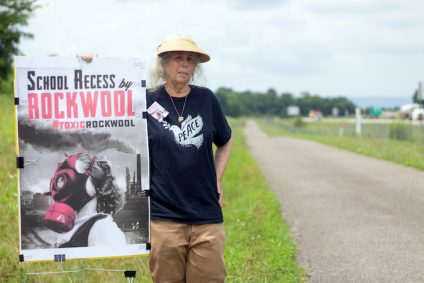
A Toxic Factory Will Create a Toxic Future
By Bobbi Blok. Children deserve clean air, water, soil, and a safe healthy area where they can play and grow. But a factory that manufactures wool-like insulation from spun-melted rock in Ranson, Jefferson County, West Virginia, will make that impossible. Rockwool, a Danish company, is constructing a factory that will…
Read More -
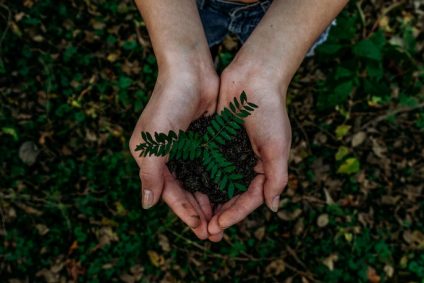
Human-Induced Climate Change
By the QEW Sustainability: Faith & Action Working Group What are the effects of human-induced climate change? Human-induced climate change threatens to overarch all the human misuses of creation, including rapidly growing human population, habitat destruction, over-exploitation of resources, and introduction of invasive species. Human-induced climate change is the…
Read More -

Soil: Begin with the Beginning
Share this Article This article is part of our Pamphlet for Sharing Series Download PDF By Tom Small It begins with the land. And the land begins from the soil. Soil that lives. The soil is the great connector of lives, the…
Read More -
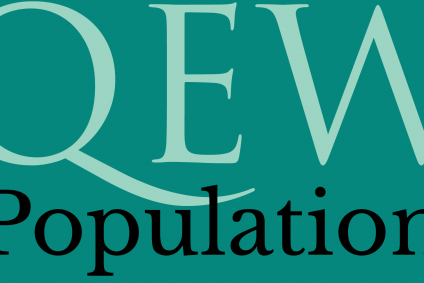
Considering Limits to Human Population Size
Friends have long been concerned about how we live on our Earth and how we can best support a good life for everyone and all species. Sustainability requires that we use Earth’s resources at a level that provides a reasonable life for all now and maintains…
Read More -
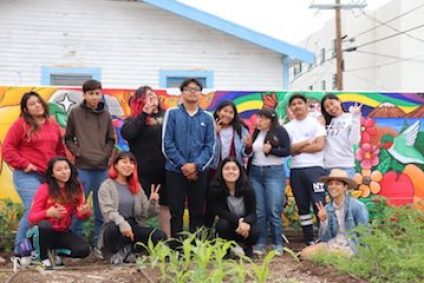
Farming for Social Change
By Sayrah Namaste “To forget how to dig the earth and to tend the soil is to forget ourselves,” Gandhi said. The American Friends Service Committee (AFSC) has been addressing the impacts of climate change through programs in New Mexico, Los Angeles, New Orleans, and Baltimore, to name a few.
Read More -
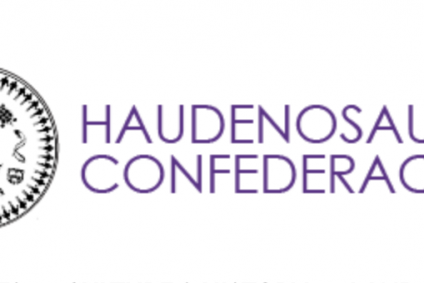
For the Love of the Land
By Pamela Haines. I’VE LOVED THIS bit of land for over fifty years. Coming up over the hill, my heart always opens anew to the jewel of a valley spread out below, part of the rolling farmland and woodlots of central New York state. My father bought an old farm…
Read More -
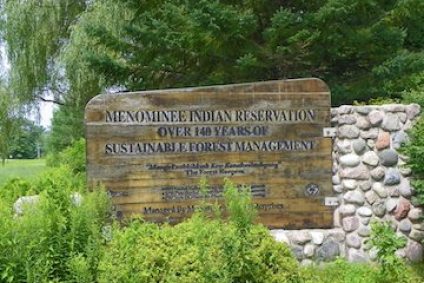
Flows Repeatedly: Learnings from the Menominee Nation
By Tom Small. NAPANOH PEMECWAN—Menominee for “flows repeatedly.” In nature, there is no foreground or background, no hierarchy, only relations, patterns of change and repetition. Train yourself to see the repeated patterns, to understand, feel, and identify with the flow. With these two Menominee words and their implications, Jeff Grignon,…
Read More -
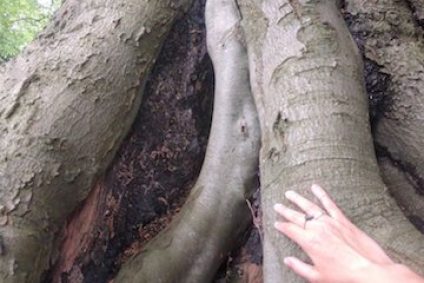
Listening to Roots, Walking in Beauty
By Mey Hasbrook. IN THE MEADOW, I gave thanks beside a beech tree. Sunset neared after a beautiful day with Swarthmoor Area Meeting of Southwest Cumbria, England. This area is called “the cradle of Quakerism” and brings to mind The Valiant 60, the 17th-century law-breaking mystics and traveling ministers from…
Read More -
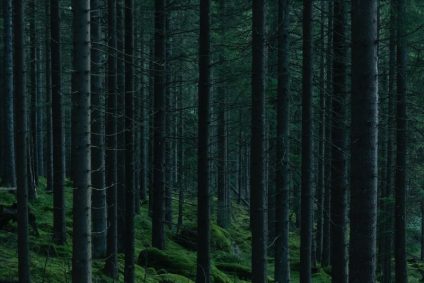
Beckoned by Living Trees
By Marcelle Martin THE FIRST TREE that beckoned me silently, long ago, was a sapling on the far side of a lawn. When I investigated, I discovered it was being strangled by an orange plastic band encircling its trunk. After the sapling had been purchased from a local nursery, the…
Read More -
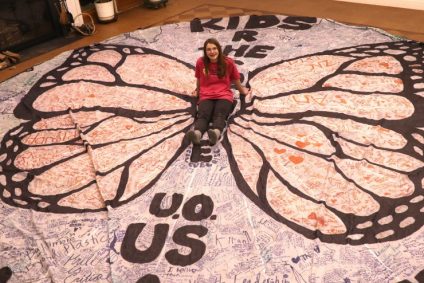
A Quaker Youth’s Journey in Climate Activism
By Kallan Benson. AS A 15-YEAR OLD QUAKER, I am accustomed to silence. I understand it is not empty; it can hold profound power. I have felt my spirit resonate in the silence of my Quaker community, but silence has recently taken me outside the meetinghouse to the steps of…
Read More -

Eco-Justice: Ecological Responsibility Linked with Social Justice
“You can’t achieve peace unless it’s accompanied by a constant striving to address the issues of justice. This means that your work will never end. It will never end.” —John Mohawk, Seneca Nation This article is part of our Pamphlets for Sharing series produced by QEW’s Publications Committee.
Read More -

Human Reproduction is in the Commons: The Case for Smaller Families
This article was created by the Population Working Group of Quaker Earthcare Witness and is part of our “Pamphlets for Sharing” series, essays on important topics researched, written, and edited using Quaker discernment and decision-making.. Download the PDF or order print copies by emailing info@quakerearthcare.org. “In past times God’s Creation…
Read More -

Talking about Climate Change: A Practical Guide
This article is part of our Pamphlets for Sharing series produced by QEW’s Publications Committee. Download the PDF here or order print copies by emailing info@quakerearthcare.org. The way we communicate our message is critical so that the vast majority of people not only grasp what we are trying…
Read More -

Talking about Climate Change: A Call for Dialog
“It is good for thee to dwell deep that thou mayest feel and understand the spirits of people.” —John Woolman (1) “Let your speech always be with grace, seasoned with salt, that you may know how you ought to answer each one.” —Colossians 4:62 (2) “Whoever says Thou does not…
Read More -
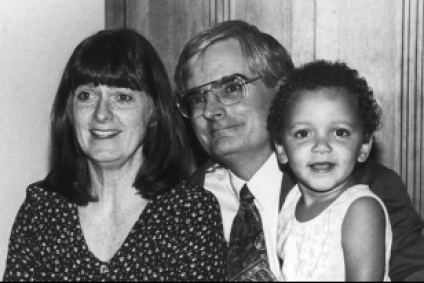
Adoption: An Option for Friends
This article was created by QEW’s Population Working Group and is part of our “Pamphlets for Sharing” series, essays on important topics researched, written, and edited using Quaker discernment and decision-making. We hope you use them as an educational tool with your community. Download the PDF here or order…
Read More -
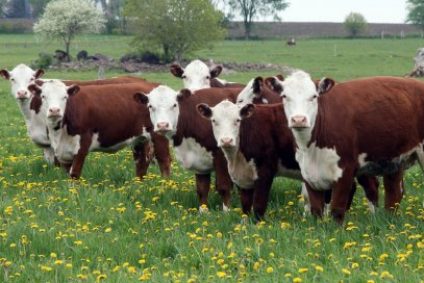
Friendly Farmers & Earthcare
By Suzanne Lamborn, Little Britain Monthly Meeting, Baltimore Yearly Meeting My husband and I can trace our roots for each generation from the beginning of the colonies in agriculture. Being farmers we were aware that our nation went from over 90 percent farming to the present 1 percent owning farms…
Read More -

Empowering Women: The Link to Population
This article was created by QEW’s Population Working Group and is part of our “Pamphlets for Sharing” series, reflections on important topics researched, written, and edited using Quaker discernment and decision-making. We hope you use them as an educational tool with your community. Download the PDF here or order…
Read More -

A Witness on Sexuality for Friends
This article was created by QEW’s Population Working Group and is part of our “Pamphlets for Sharing” series, reflections on important topics researched, written, and edited using Quaker discernment and decision-making. We hope you use them as an educational tool with your community. Download the PDF here or order…
Read More -

Seeking Clearness on Childbearing in a Crowded World
This article was created by QEW’s Population Working Group and is part of our “Pamphlets for Sharing” series, reflections on important topics researched, written, and edited using Quaker discernment and decision-making. We hope you use them as an educational tool with your community. Download the PDF or order print…
Read More -
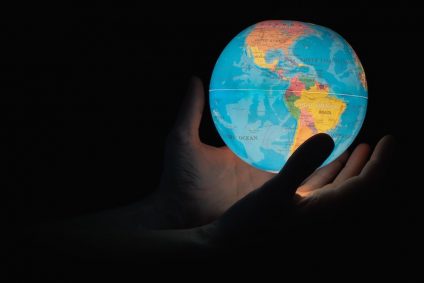
Immigration in a Crowded World: A Friends’ Perspective
This article was created by QEW’s Population Working Group and is part of our “Pamphlets for Sharing” series, reflections on important topics researched, written, and edited using Quaker discernment and decision-making. We hope you use them as an educational tool with your community. Download…
Read More -
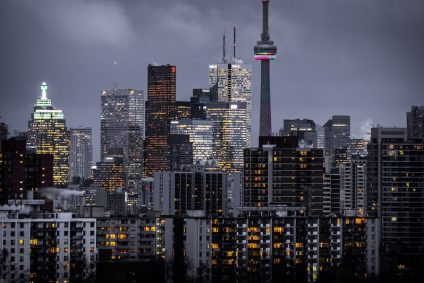
Friends Witness on Population
This article was created by QEW’s Population Working Group and is part of our “Pamphlets for Sharing” series, reflections on important topics researched, written, and edited using Quaker discernment and decision-making. We hope you use them as an educational tool with your community. Download…
Read More -
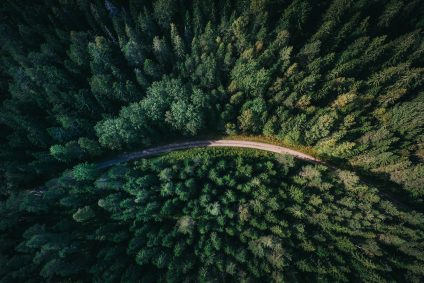
Friends Seeking Clearness on Abortion
This article was created by QEW’s Population Working Group and is part of our “Pamphlets for Sharing” series, reflections on important topics researched, written, and edited using Quaker discernment and decision-making. This text is intended as an aid to worship-sharing on this sensitive topic.
Read More -
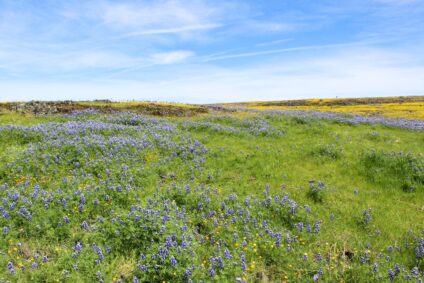
Ecological Integrity and the Light Within
by Louis Cox and Ruah Swennerfelt. Ruah is the former General Secretary of Quaker Earthcare Witness IN THE COURSE of our travels to present on behalf of Quaker Earthcare Witness, we search with gathered Friends for ways we all can “walk more gently on the Earth” and…
Read More -
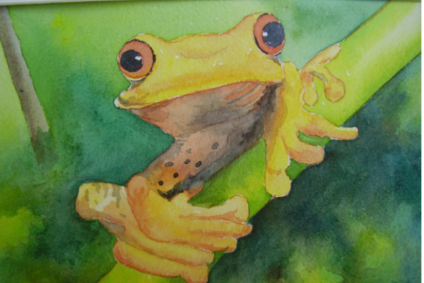
Earthcare, Our Spiritual Journey Home
By Mary C. Coelho and Mary Jo Klingel Illustrations by Mary C. Coelho The New Story prepares us for further evolution in human consciousness, to become active participants in the creative Earth process. “WHAT does that have to do with me? So what?” That’s how some people respond when told…
Read More -
Sustainability and Truth
By Louis Cox. THE TERM “SUSTAINABILITY” came into fashion with the modern environmental movement, particularly after the 1992 UN Earth Summit. The concept has offered hope in the face of relentless bad news by highlighting things that ordinary people can do that would make a big difference if enough…
Read More -
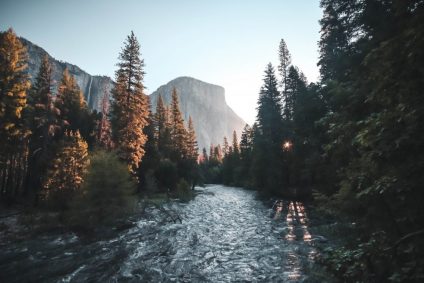
Peace on Earth, Peace with Earth: Living in a Radically New Way
By Kim Carlyle. Living in a Radically New Way SINCE 1955 when he registered as a conscientious objector, Karl Meyer has been an activist for peace, advocating nonviolence, organizing demonstrations, and refusing to pay taxes to finance war. Over the years, he has come to realize that an…
Read More -
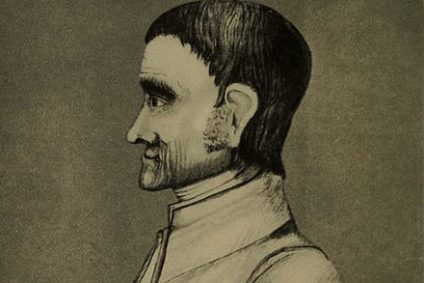
Living in Right Relationship
EIGHTEENTH CENTURY QUAKER John Woolman called for living in the “right relationship” as he witnessed to his generation against the evils of slavery, oppression, and materialism- which he warned were causing injury to future generations. We discern a similar dynamic of greed and thoughtlessness in today’s global environmental crisis.
Read More -

Friends, Money, and the Earth
This article is part of our Pamphlets for Sharing series produced by QEW’s Publications Committee. Download the PDF here or order print copies by emailing info@quakerearthcare.org. Mindful earning, spending, giving, and investing can lower our ecological foot- prints and promote peace and social justice. But going beyond our…
Read More -

Mindful Living, Mindful Giving
This article is part of our Pamphlets for Sharing series produced by QEW’s Publications Committee. Download the PDF here or order print copies by emailing info@quakerearthcare.org. “COMPASSIONATE CONSUMPTION is not about sacrificing or giving up what we need. It is about reawakening to the sacred within and around…
Read More -
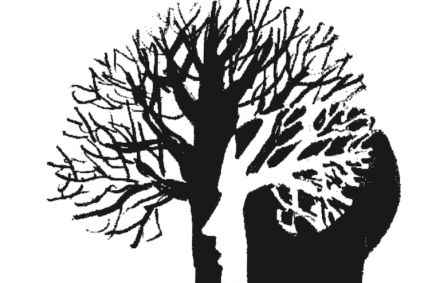
The Spiritual Dimension: Why We Care for the Earth
This article is part of our Pamphlets for Sharing series. Download the PDF or email info@quakerearthcare.org for print copies to share and distribute. By Jack Phillips WHAT DO WE MEAN by saying, “Our concern for the Earth is a spiritual one”? By recognizing this concern as spiritual, we are…
Read More -
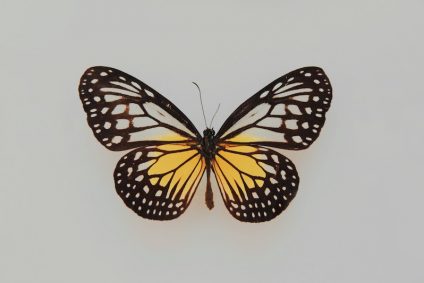
Quakers Practicing Sustainability
This article is part of QEW’s Pamphlets for Sharing Series. Download it here or email info@quakerearthcare.org Practicing Sustainability—What Does It Mean for Friends? Caterpillars undergo transformation into butterflies; tadpoles into frogs. This is metamorphosis. Can we transform our culture and our individual lives to…
Read More -
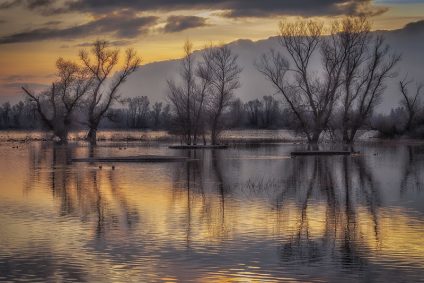
Slowing Down the Speed of Life
This article is part of our Pamphlets for Sharing series produced by QEW’s Publications Committee. Download the PDF here or order print copies by emailing info@quakerearthcare.org. Slowing down is a spiritual process, based on reverence for life, ourselves, and each other. LIFE has its own cycles, rhythms, and…
Read More -
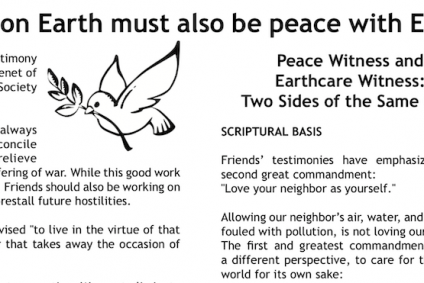
Peace on Earth, Peace with Earth
This article is part of our Pamphlets for Sharing series produced by QEW’s Publications Committee. Download the PDF here or order print copies by emailing info@quakerearthcare.org. The Peace Testimony The Peace Testimony is a principal tenet of the Religious Society of Friends. Friends have always worked to reconcile…
Read More -
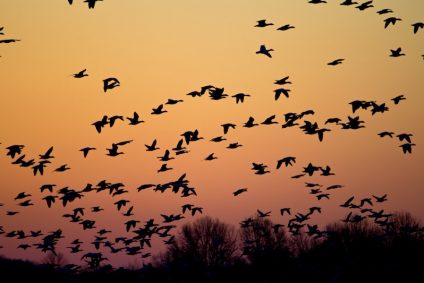
Freeing Ourselves from Possessions
This article is part of our Pamphlets for Sharing series produced by QEW’s Publications Committee. Download the PDF here or order print copies by emailing info@quakerearthcare.org. By Tom Small FOR SOME TIME NOW, my house has been becoming more transparent. I can see across it,…
Read More